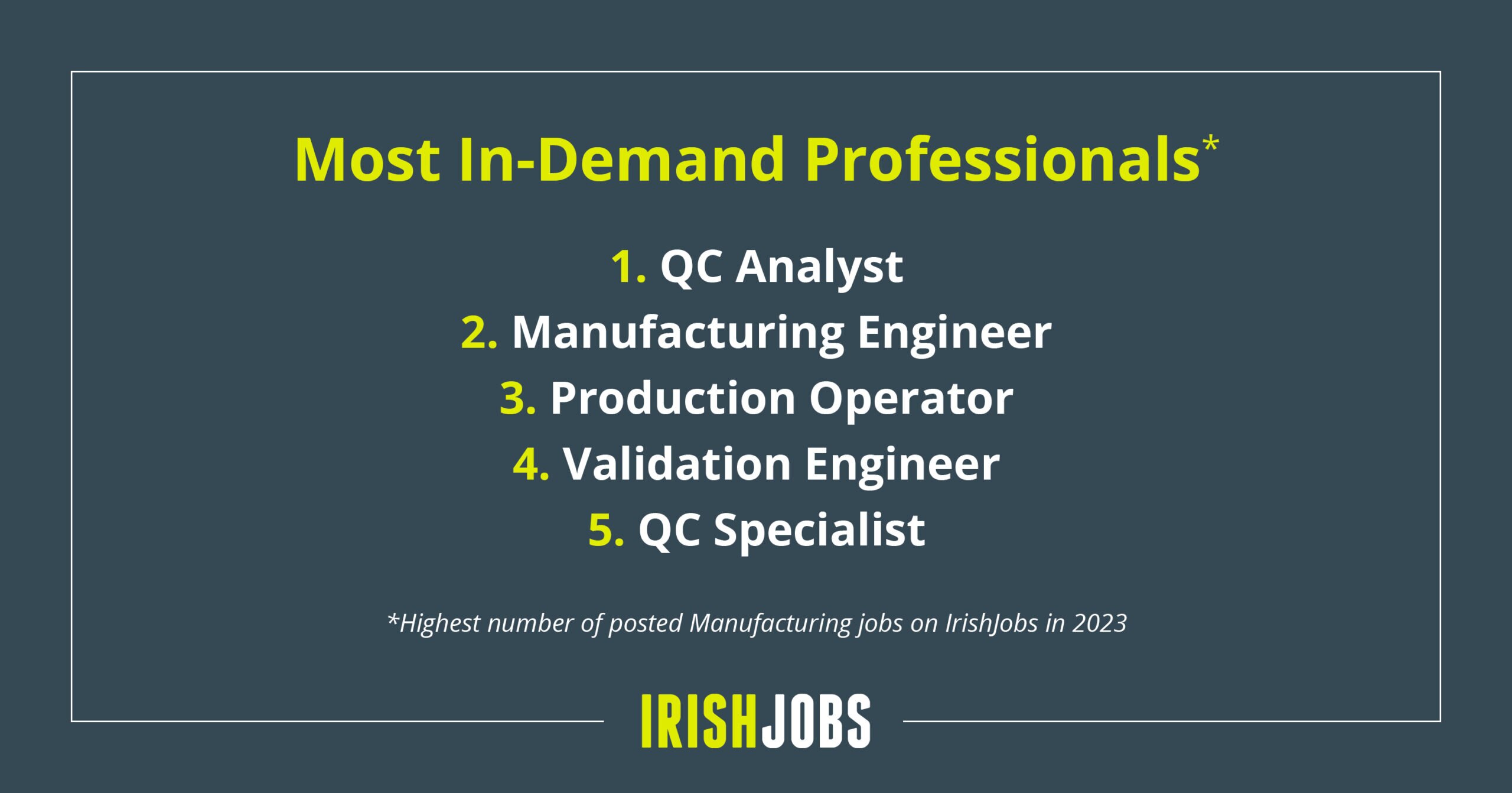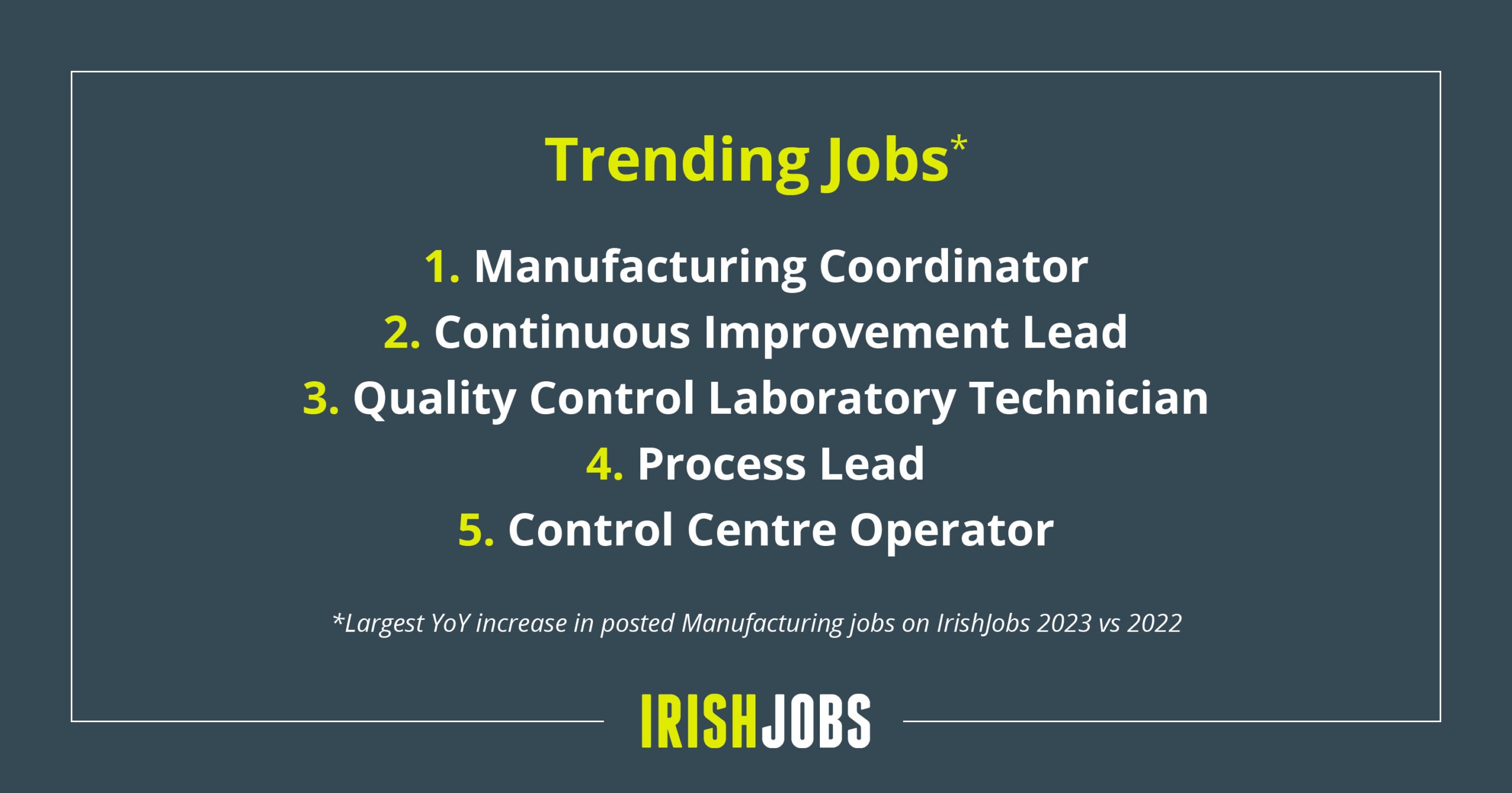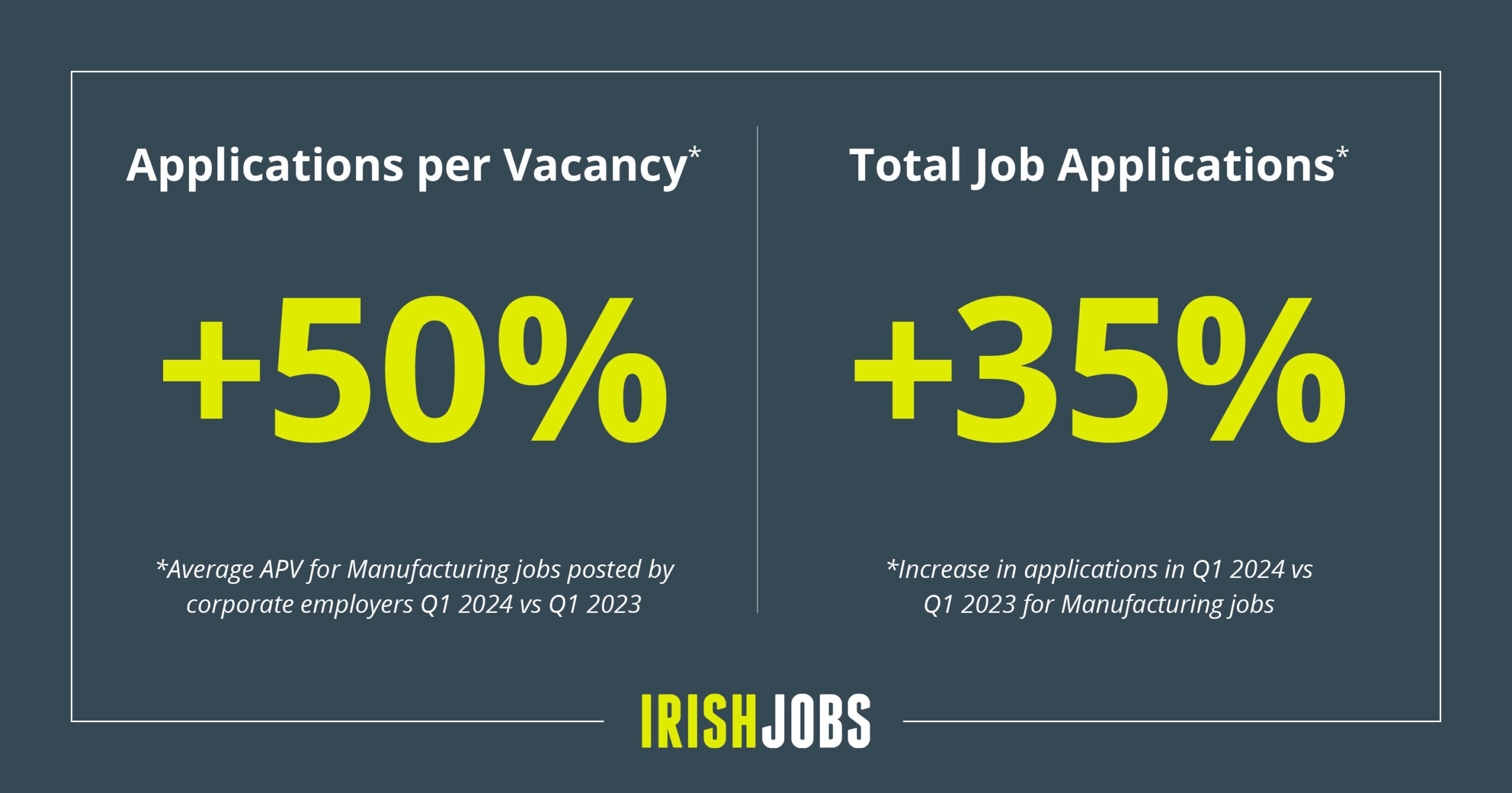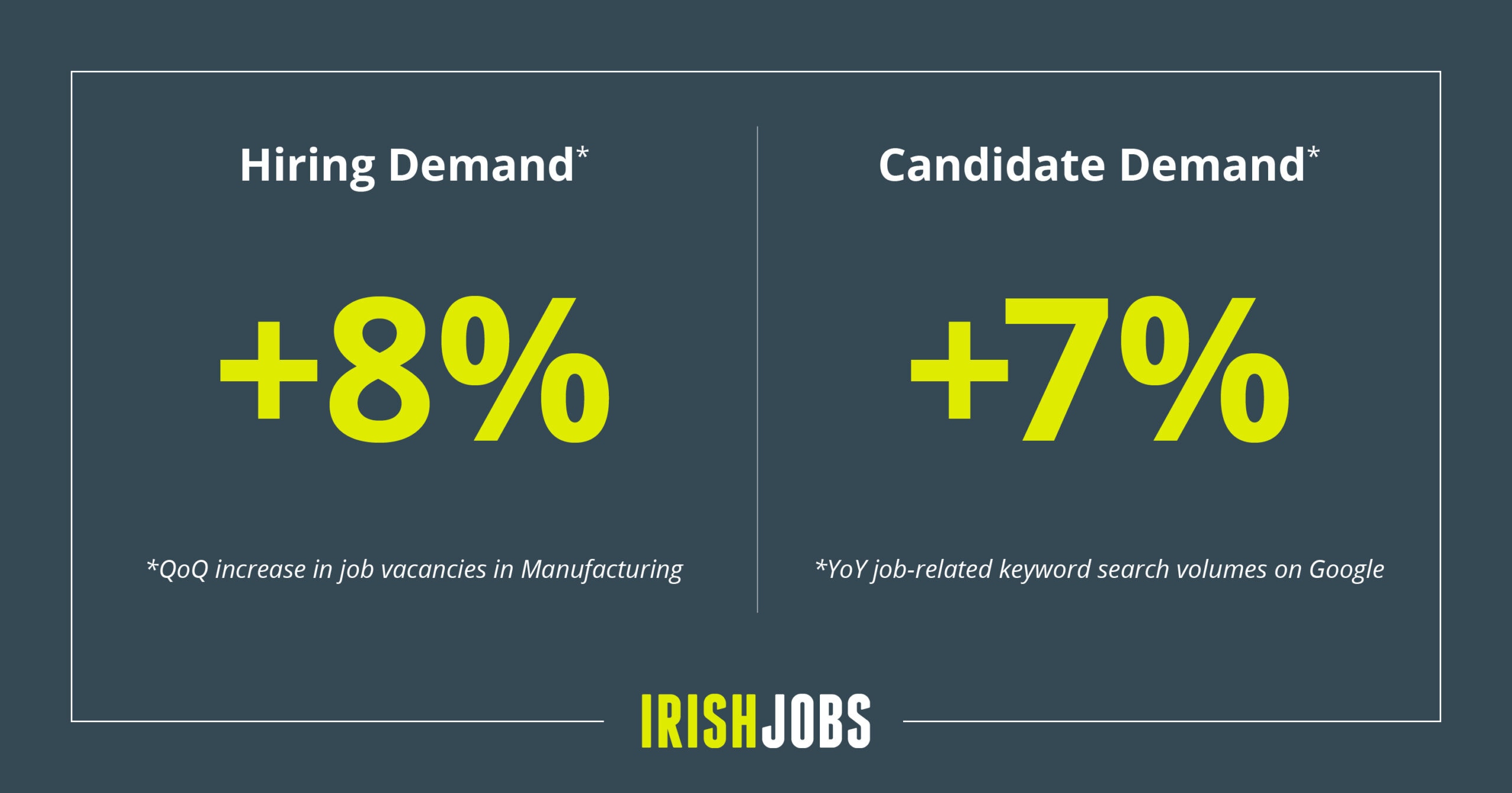The Manufacturing industry is a cornerstone of the Irish economy, recognised for its role as an internationally traded sector. Ireland is home to a number of world-class Manufacturing operations across a wide variety of sectors, including biopharmaceuticals, engineering, medical technology, food production and building materials. There are 275,000 people employed in the Irish Manufacturing sector, representing 11% of total employment in the economy, with global leaders such as Regeneron, Boston Scientific, Stryker, and Medtronic all actively hiring with IrishJobs.
This article offers valuable information to support the recruitment strategies of Manufacturing employers in Ireland, including details on the most in-demand roles such as Process Engineers, Quality Control Specialists, and Supply Chain Managers. This resource equips employers with the information to navigate the evolving Manufacturing job market effectively.
Recruitment Insights
The resilience of the Manufacturing sector industry was notably evident during the pandemic, where it remained a vital part of economic activity. Despite facing challenges such as high production costs and reduced consumer spending in global markets post-Covid, the sector has shown signs of recovery, with a modest growth forecast for 2024. Indeed, the latest Jobs Index from IrishJobs shows an 8% increase in jobs for Manufacturing professionals in the first three months of this year compared to the previous quarter, a sign of a proactive shift towards hiring by employers in the sector.
In a competitive recruitment environment, employers with knowledge of the most sought-after professionals can create achievable hiring timelines and develop competitive employment offerings to attract and retain top talent.
Hiring Activity
The ESRI’s upbeat assessment of the Irish economy forecasts a positive trajectory for 2024, with a robust labour market, declining inflation, and continued low unemployment rates.
Recruitment activity in Manufacturing picked up pace in the first three months of 2024. An increase in overall candidate activity, coupled with enhancements to the job-matching software and application process on IrishJobs, drove an increase in the average Total Applications and Applications per Vacancy (APV) for Manufacturing roles. Total applications increased by over a third, while applications per vacancy rose by 50%. Hiring demand also accelerated, with employers increasing their job posting activity by 8%.
The job vacancy rate is an important economic indicator, providing insights into the dynamics of the labour market. It allows various stakeholders, from government and policymakers to businesses and jobseekers, to make better-informed decisions.
Falling back from high vacancy rates during the post-pandemic hiring surge, the current vacancy rate of 1% suggests a return to a more balanced and settled labour market.
Talent Attraction & Recruitment Considerations
Any organisation’s success largely depends on the talent quality it attracts and recruits. Therefore, it is essential to carefully consider the strategies and tactics employed to attract and recruit top talent. By doing so, you can ensure that your organisation has the best possible team to achieve its goals.
Here are five key considerations for recruiters:
Talent Offerings & Competitive Benefits: With high numbers of people in work in Ireland and skills shortages persisting in many sectors, recruiters need to re-evaluate their talent offerings to gain the skilled talent their company needs. This can involve enhancing benefits packages, offering flexible work arrangements, providing opportunities for professional development and growth, and more. Employers in the Manufacturing sector should also emphasise that they are committed to providing career progression opportunities and long-term stability to all successful workers. Offering clear career progression paths with opportunities for promotions and upward mobility within the organisation is a straightforward way to promote long-term employee retention.
Employee Retention: Employees who have a positive experience at work tend to speak highly of the business, which can attract more talent. Understanding employees’ experience starts with having supportive management teams who lead transparently and listen actively to feedback. Business owners, managers, and HR professionals must clearly understand why employees will stay with their business and why they might leave.
Modern Work Environment: As a recruiter, you can attract prospective candidates by highlighting your commitment to technological innovation and a modern work environment. Manufacturing facilities are at the forefront of technological advancements, offering employees the chance to work with state-of-the-art machinery, robotics, automation, etc. Additionally, promoting a work culture of continuous improvement and innovation makes your workplace ideal for those eager to be part of a progressive and dynamic organisation.
Time to Hire: Recruiting the best candidates for a job is crucial, but a lengthy and over-complicated hiring process can backfire on recruiters. Therefore, it’s essential to simplify and streamline the process for candidates. Having too many regulations to follow when it comes to applying or going through multiple interview stages can consume much time, and it may discourage the candidate from pursuing the job, leading them to seek opportunities elsewhere.
Speedy Offer Process: Extending job offers promptly can help employers secure top talent. A swift and transparent job offer process demonstrates respect for candidates’ time and highlights the organisation’s commitment to efficiency and professionalism. Delays in extending job offers can reduce candidate’s confidence in a company and prompt them to explore alternative opportunities.
In today’s competitive job market, recruiters must proactively attract and retain top professionals. Experienced recruiters stand out because they know how to adapt, innovate, and refine their recruitment strategies. This helps them to find skilled, professional employees who will help drive continued growth and development for your company.




